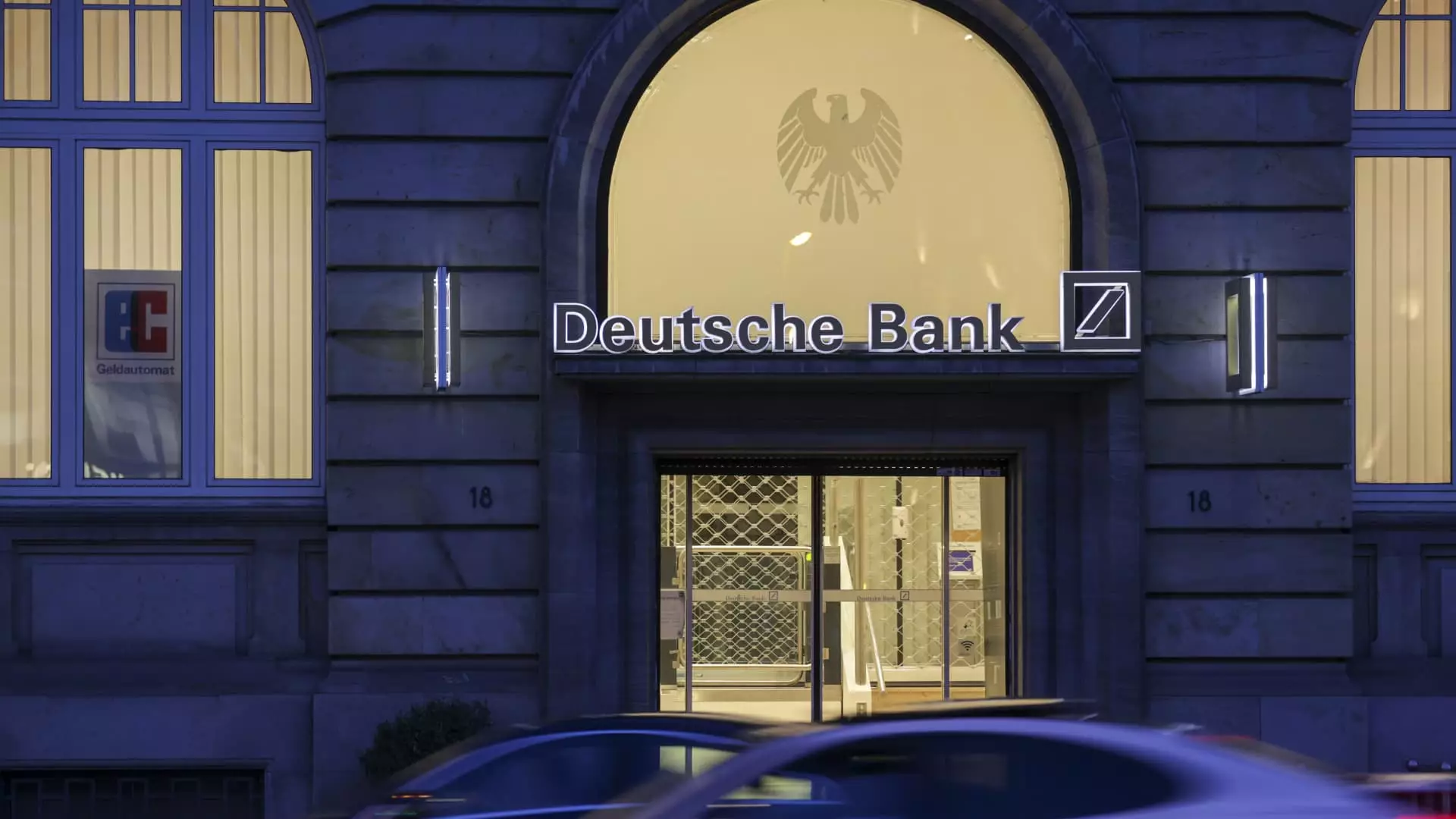The protracted legal struggle involving Deutsche Bank and the acquisition of Postbank dates back to the late 2000s, amidst a backdrop of economic uncertainties. The series of lawsuits initiated by both institutional and private investors highlights not just the complexities of financial settlements but also the potential ramifications for one of Germany’s largest banking entities. As this case navigates through various legal challenges, the implications of Deutsche Bank’s actions—particularly regarding a recently proposed settlement—raise critical questions about corporate accountability and investor rights.
Deutsche Bank’s latest settlement proposition of 36.50 euros ($40.12) per share has been met with skepticism. Jan Bayer, a prominent attorney and senior partner at Bayer Krauss Hueber, lambasted this offer as a “late low ball” settlement, reflecting a pronounced disappointment from the claimant side, which numbers in the hundreds. This offer, emerging less than a week before a crucial court hearing, appears to be an attempt by Deutsche Bank to sidestep impending legal outcomes, a tactic Bayer argues has been in the pipeline for some time despite the bank’s prior reassurances to the contrary. Such timing raises concerns about the sincerity of the settlement discussions and the bank’s commitment to equitable resolutions.
In this case, Bayer Krauss Hueber represents around 50 institutional investors, collectively making claims amounting to nearly 1 billion euros. This underscores the significant financial stakes involved—not just for Deutsche Bank, but also for the investors who have effectively been in limbo since the original acquisition. This legal representation fuels the narrative that larger financial institutions may sometimes operate with a cavalier attitude towards claims from less powerful entities, especially during settlement negotiations. Bayer’s assertion that at least one claimant has already rejected the proposed settlement adds pressure on Deutsche Bank, as it indicates potential fragmentation among claimants regarding acceptance.
Communications from Deutsche Bank regarding their ongoing settlement negotiations reveal a strategy that, at its surface, emphasizes a willingness to engage. However, the lack of further comment may suggest a reticence to confront the underlying issues directly. For a bank that has recently seen its first net loss attributable to shareholders in four years largely attributed to these legal proceedings, the stakes are high. A 1.3 billion euro provision set aside for the Postbank controversies has already impacted stock performance, with shares experiencing volatility directly correlated to these legal challenges.
This financial context casts the settlement offer in a stark light—timed during a busy holiday season, and lacking in clarity, it further implies that Deutsche Bank might be attempting to shield itself from greater liabilities at the expense of investors aggrieved by the contentious acquisition.
The Higher Regional Court in Cologne is tasked with revisiting claims previously dismissed and reinstated by the Federal Court of Justice. The court’s upcoming decision holds weight not only for the parties directly involved but also for the broader banking sector, particularly regarding regulatory and ethical standards in corporate transactions. Given the clear frustration voiced by Bayer and other claimants, there looms a profound uncertainty over whether Deutsche Bank can indeed navigate these legal waters to a favorable outcome without significant concessions.
As this legal battle unfolds, Deutsche Bank’s proposed settlement invites scrutiny not just on its fairness, but also on the broader questions of corporate governance and investor rights. Investors are left grappling with the implications of this case, as the relationship between legal action and financial accountability continues to evolve in one of Europe’s leading financial institutions. How Deutsche Bank responds to both the court’s decisions and the concerns of its claimants will undoubtedly shape its reputation and operations for years to come.


Leave a Reply